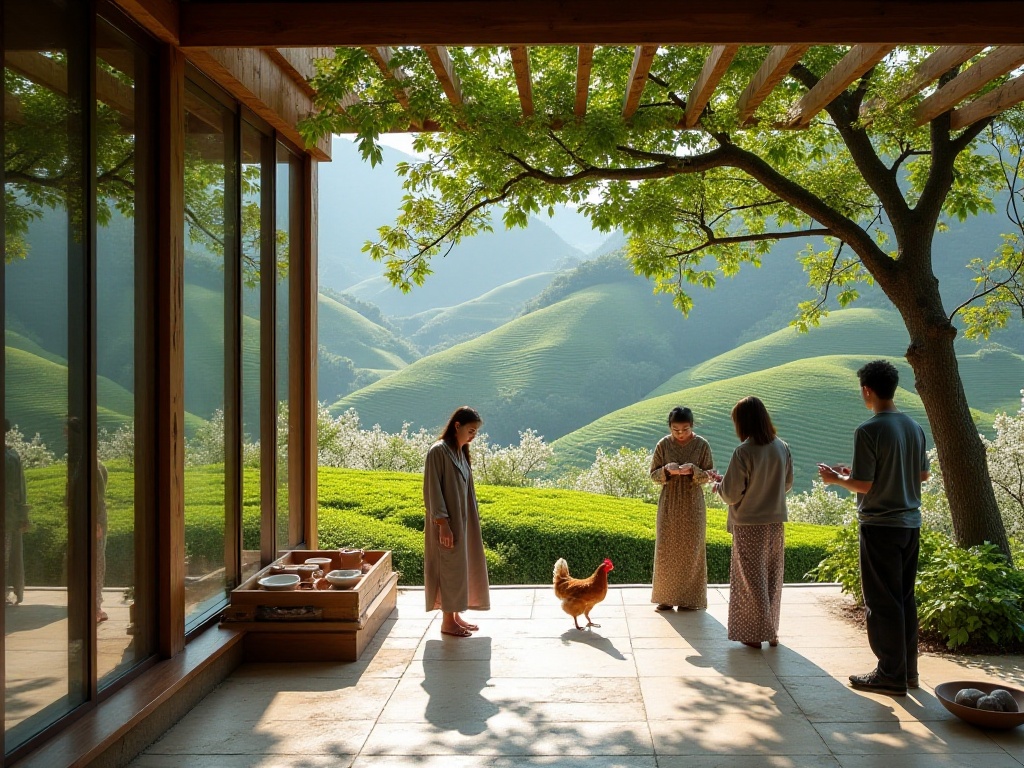
An Unexpected Discovery
One day at the foot of Moganshan Mountain in Deqing County, Zhejiang, I discovered a striking coffee shop. Rather than just a café, it was more like a hidden paradise among rice paddies. Built entirely with natural wood, it was surrounded by endless rice fields, especially enchanting in the morning mist. The blend of coffee aroma inside and the earthy fragrance from the paddies made visitors naturally slow their pace to savor this unique experience.
The building's design showed exceptional craftsmanship, with large floor-to-ceiling windows capturing the magnificent views of the rice fields. I chose a window seat and ordered a pour-over coffee. Through the glass, watching farmers working in the fields and the wind creating waves across the rice plants - this was something you could never experience at a city Starbucks.
Old and New
This scene reminded me of childhood trips to the countryside with my parents. Back then, rural tourism meant simple "nong jia le" (farm stays): a few bamboo poles supporting an awning, basic wooden tables serving authentic farm dishes, with vegetables picked straight from the backyard garden. Though basic, that authentic rural atmosphere still brings back fond memories.
Rural tourism today is completely different. Take accommodation for example - what used to be ordinary farmhouses kept clean and tidy at best have been replaced by boutique homestays everywhere. Some renovate old houses, preserving the original architectural style while adding designer interiors; others build new villas complete with hot springs and pools, offering guests a "rural luxury" experience.
Even dining has become sophisticated. Last year at a rural restaurant in Dali, Yunnan, the chef came from a five-star hotel and prepared local ingredients to Michelin standards. Located beside terraced fields, guests could enjoy fine dining while watching the sunset paint the terraces red - it was incredible!
Deep Reflection
These changes reflect the transformation and upgrade of China's entire rural tourism industry. The rural leisure tourism market in 2023 exceeded many people's expectations. With 3.5 billion visits and 1.8 trillion yuan in revenue, this represents a significant portion of the country's total tourism income.
Why such a large market? The reason is simple. As living standards have improved, people's pursuit of quality of life has increased. Especially in fast-paced urban life, people increasingly yearn to return to nature and relax. The countryside provides exactly this kind of space away from the hustle and bustle.
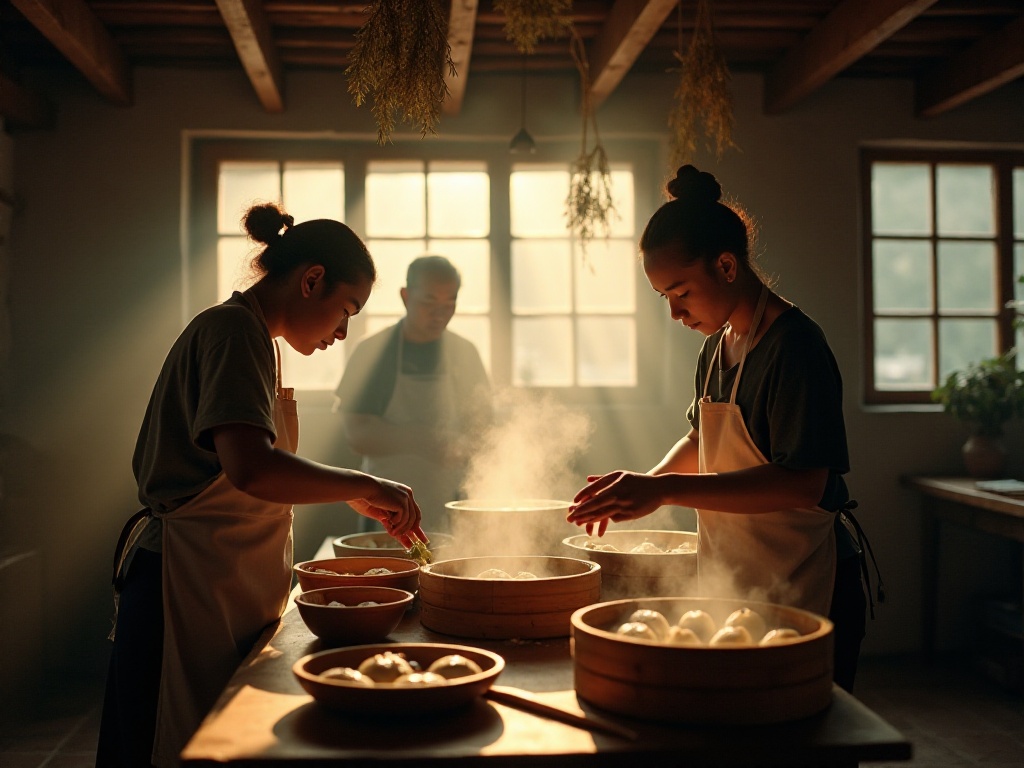
Evolving Demands
Today's young people, especially those born in the 1980s and 1990s, have fundamentally different demands for rural tourism. They're no longer satisfied with basic food and lodging, instead emphasizing rich experiences and cultural content. According to a 2023 tourism platform survey, over 65% of young tourists prioritize unique experiences and cultural elements when choosing rural destinations.
This change in demand has directly driven innovation in rural tourism. For instance, in a small village in Wuxi, Jiangsu, a post-90s returnee transformed their old house into a "late-night diner." Beyond serving authentic farm dishes, guests can gather around the stove with like-minded people and chat into the night. Every weekend, many urbanites drive specially to experience this slow-paced lifestyle.
In Anji, Zhejiang, there's a creative market set in a bamboo forest. Each stall is built with bamboo, selling local handicrafts and agricultural products. Most uniquely, they invite folk artists to demonstrate traditional crafts like bamboo weaving and paper cutting, allowing visitors to both shop and learn about traditional culture.
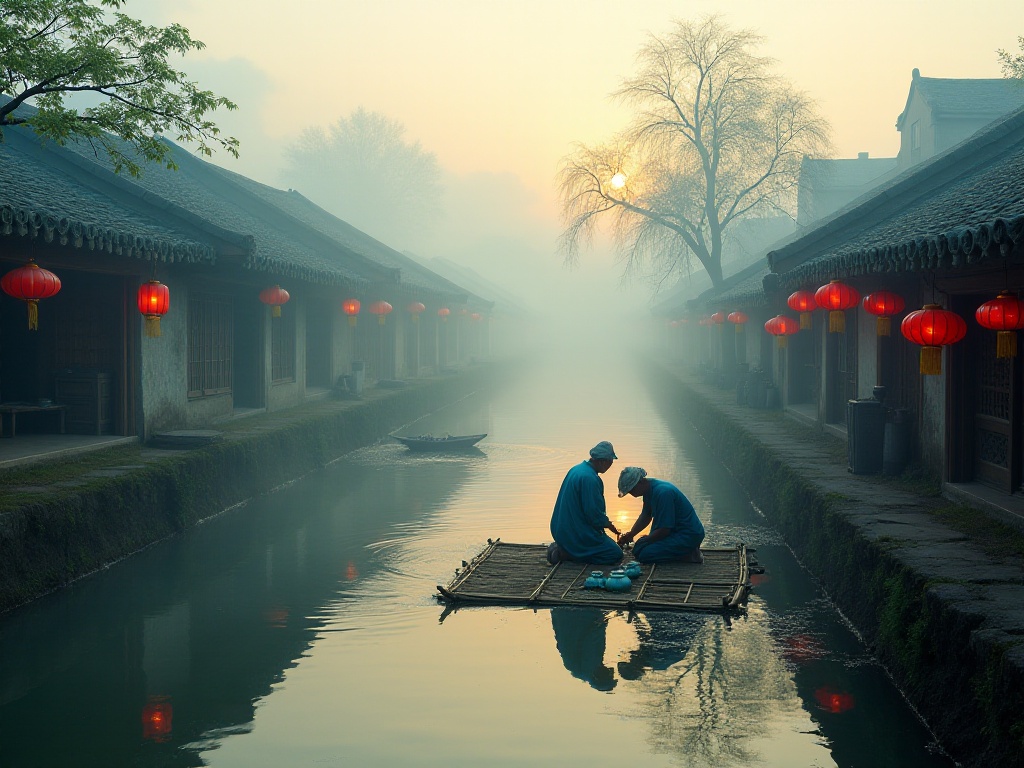
Core Understanding
Ultimately, modern rural tourism's essence lies in maintaining rural authenticity while cleverly incorporating modern elements. Like that rice field coffee shop, it didn't destroy farmland to cater to urban tastes but skillfully integrated the café into the paddy landscape.
In architectural design, the café used many eco-friendly materials, its appearance blending seamlessly with the surrounding pastoral scenery. The interior design was thoughtful too, preserving rural simplicity while adding modern minimalist elements. Even the coffee beans were locally grown varieties, ensuring quality while showcasing local characteristics.
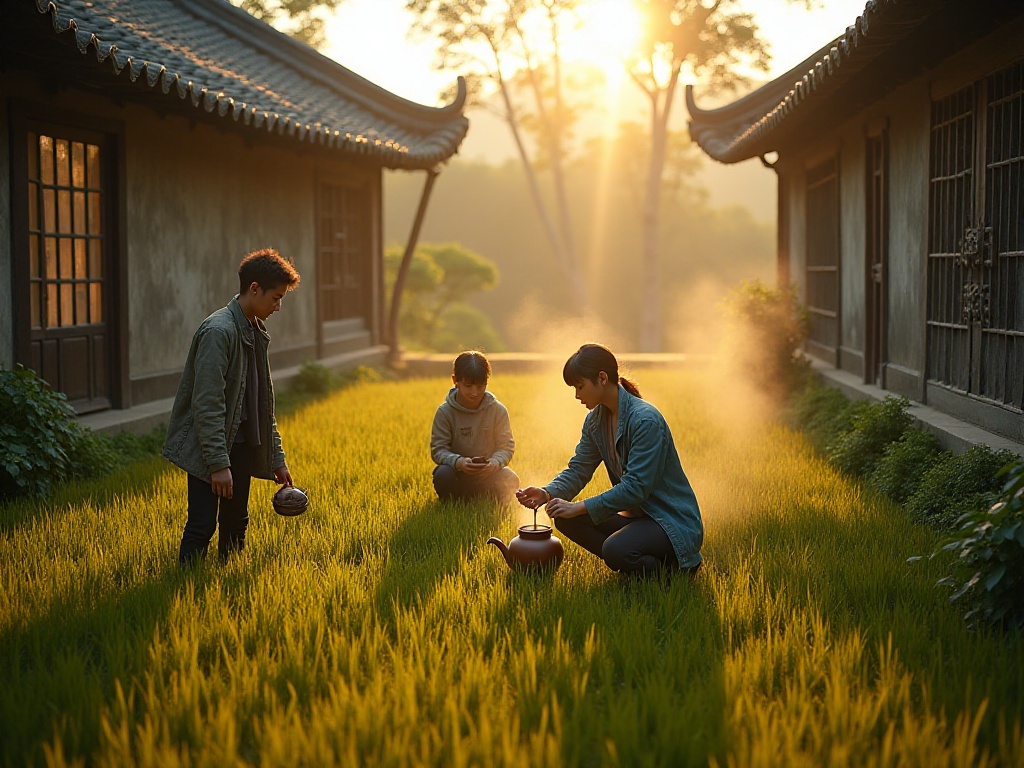
Development Path
Looking back at rural tourism's development, from the EU and OECD's 1994 definition to now, the essence of "rurality as the core selling point" hasn't changed - our understanding of "rurality" has just become richer and more diverse.
Early rural tourism emphasized "rurality" more on the material level, like farm meals and courtyards. Now "rurality" encompasses more dimensions: natural ecological aspects like good environment and pristine scenery; cultural aspects like rural traditions and handicrafts; and social aspects like rural hospitality and lifestyle.
Innovative Models
Speaking of innovation, current rural tourism projects are truly eye-opening. In Wuyuan, Jiangxi, a returned college graduate's creativity particularly moved me. He transformed his family's hereditary tea garden into a "tea garden library." Imagine reading in a glass house amid mountains and waters, occasionally experiencing tea picking and processing - this perfect combination of culture and nature naturally attracts urbanites.
In Dali, Yunnan, I met a creative farmer who converted an idle cattle pen into a handicraft studio. Beyond creating his own work, he regularly holds workshops teaching visitors weaving and tie-dyeing. Most specially, he displays his collection of old items in the studio, each with a QR code that reveals its story when scanned.
In suburban Chengdu, Sichuan, a farm makes agricultural experiences particularly interesting. They design various activities according to seasons: spring for rice planting and tea picking, summer for fruit picking and loach catching, autumn for rice harvesting and wine making, winter for pickling vegetables and making preserved meat. Each activity comes with professional guides explaining agricultural knowledge in accessible ways.
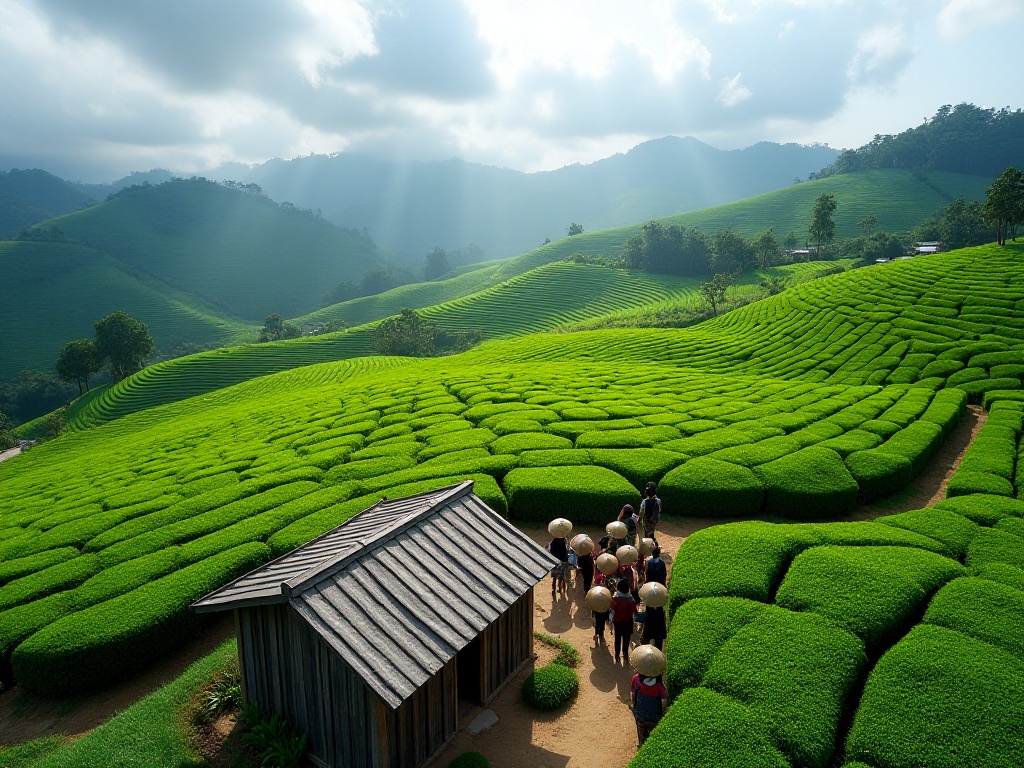
Economic Value
This transformation has brought considerable economic benefits to rural areas. In 2023, national leisure agriculture and rural tourism revenue grew over 25% year-on-year, a remarkable rate within the entire tourism industry.
Take that rice field coffee shop - despite its relatively remote location, weekend visitor numbers easily exceed 200. With average per-customer spending above 150 yuan, guests buy not just coffee but local specialties too. They've recently developed peripheral products like postcards and canvas bags featuring paddy field scenery, which are popular among young people.
More importantly, rural tourism development has driven overall rural economic revival. While young people used to flock to cities, many now choose to return for entrepreneurship. Some run homestays, others open specialty restaurants or process agricultural products, forming a complete industrial chain.
Future Outlook
Looking ahead, rural tourism has huge development potential. With technological advancement, more novel experiences will emerge. For example, VR farming experiences letting visitors experience ancient agricultural scenes without leaving home; smart orchard tours where scanning trees reveals species and growth cycle information; even using AR technology to recreate ancient rural scenes in the fields.
However, while innovating, maintaining rural authenticity remains paramount. Excessive commercialization and modernization might destroy the countryside's original charm. Therefore, future rural tourism development needs to find balance between innovation and preservation.

Concluding Thoughts
Returning to that rice field coffee shop, it's not just a place for coffee but a convergence point of urban and rural cultures. Here, you can taste Italian coffee while smelling rice field fragrance; work on a laptop while watching farmers tend their crops.
This cultural collision and fusion embodies modern rural tourism's essence. It satisfies urbanites' needs to connect with nature and relax while maintaining rural uniqueness. Perhaps this is rural tourism's future: both modern and traditional, both fashionable and simple, letting every visitor find their own poetic dwelling.
Next
Hidden Gems in Rural Vietnam: Rediscovering Serenity Post-Pandemic
As the world emerges from the cocoon of lockdowns, Vietnam's countryside unfurls its wings, revealing a kaleidoscope of hidden treasures. The pandemic's pause has birthed a new era of travel, one that whispers of untrodden paths and authentic encounters. Rural Vietnam, once the backdrop to frenetic city escapes, now takes center stage in a renaissance of rustic allure.
In-Depth Exploration: 10 Hidden Rural Tourism Destinations in Europe Worth Experiencing in 2024, Making Your Travel Unique
A comprehensive overview of global rural tourism destinations, featuring distinctive villages and countryside locations across Europe, North America, and Asia. Explores diverse accommodation options and outdoor activities from Serbia's Zlatibor to Hokkaido, Japan
The Ozark Mountains: A Forgotten Outdoor Paradise in South-Central USA, A Sanctuary Where City Dwellers Can Find Inner Peace
Explore diverse rural tourism destinations worldwide, featuring unique experiences from Native American culture in the US South to traditional villages in Eastern Europe and natural landscapes in Asia-Pacific, highlighting authentic cultural encounters and sustainable travel
Next
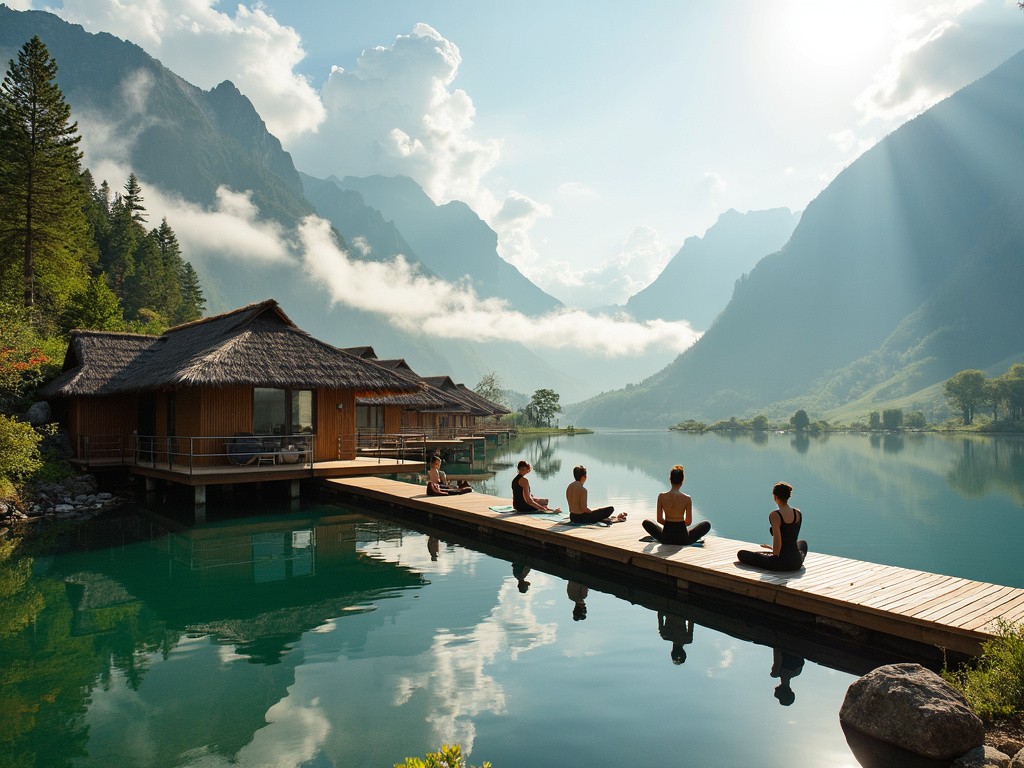
Hidden Gems in Rural Vietnam: Rediscovering Serenity Post-Pandemic
As the world emerges from the cocoon of lockdowns, Vietnam's countryside unfurls its wings, revealing a kaleidoscope of hidden treasures. The pandemic's pause has birthed a new era of travel, one that whispers of untrodden paths and authentic encounters. Rural Vietnam, once the backdrop to frenetic city escapes, now takes center stage in a renaissance of rustic allure.
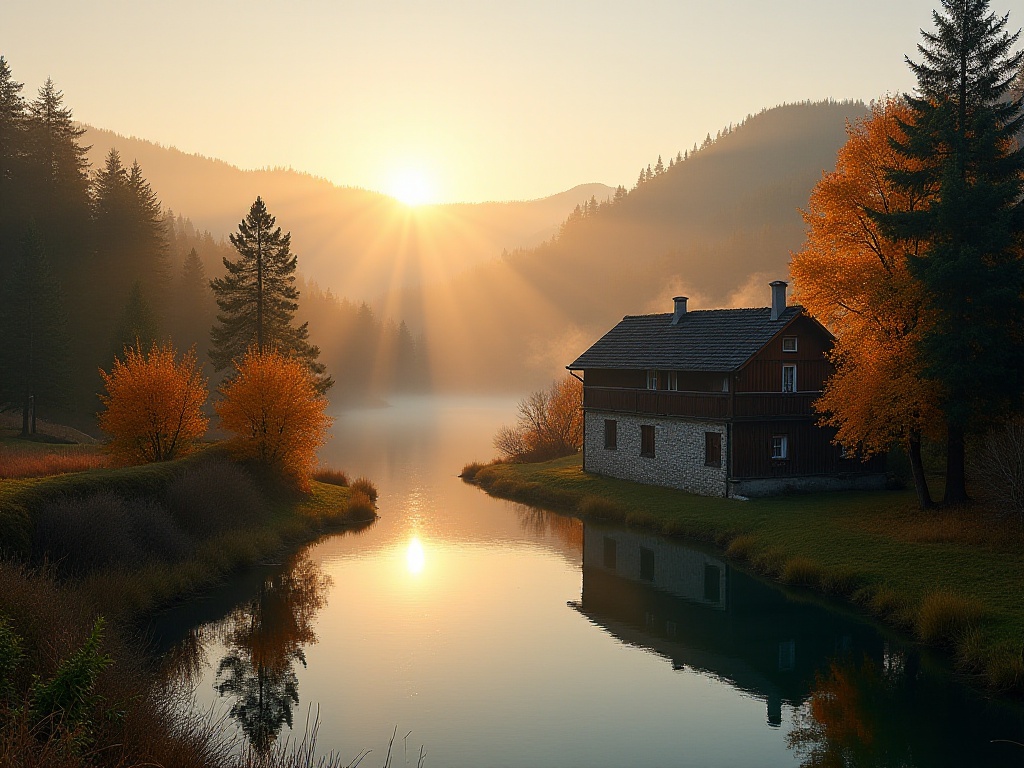
In-Depth Exploration: 10 Hidden Rural Tourism Destinations in Europe Worth Experiencing in 2024, Making Your Travel Unique
A comprehensive overview of global rural tourism destinations, featuring distinctive villages and countryside locations across Europe, North America, and Asia. Explores diverse accommodation options and outdoor activities from Serbia's Zlatibor to Hokkaido, Japan
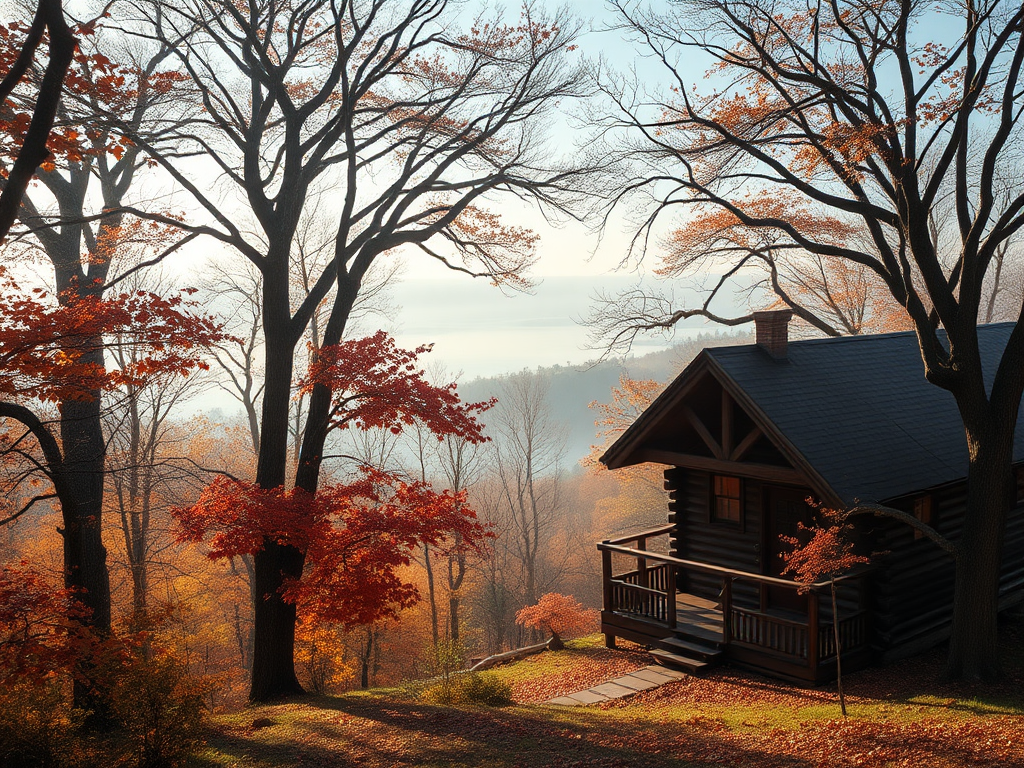
The Ozark Mountains: A Forgotten Outdoor Paradise in South-Central USA, A Sanctuary Where City Dwellers Can Find Inner Peace
Explore diverse rural tourism destinations worldwide, featuring unique experiences from Native American culture in the US South to traditional villages in Eastern Europe and natural landscapes in Asia-Pacific, highlighting authentic cultural encounters and sustainable travel

